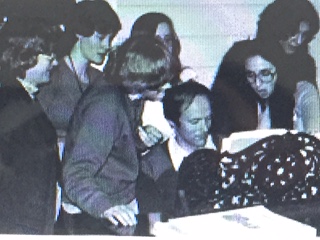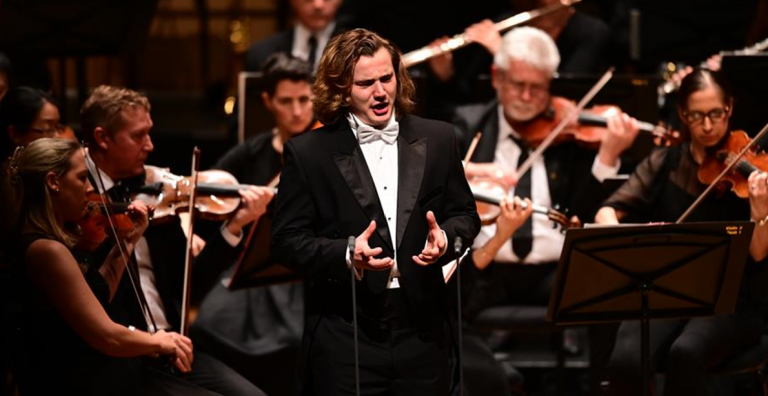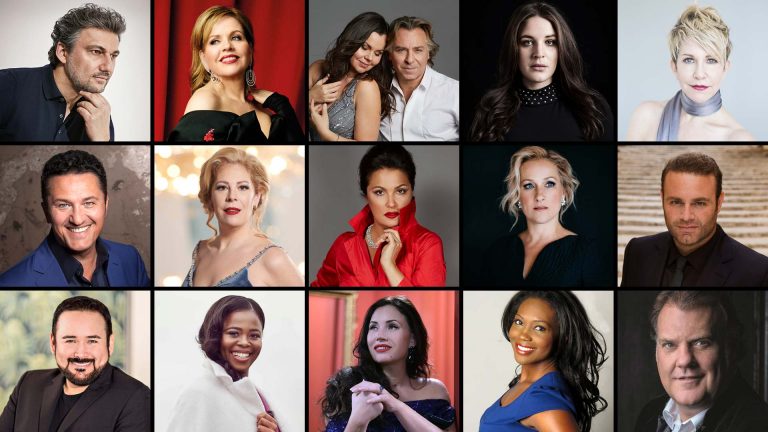Nicholas Routley Writes

On the eve of returning to conduct the 40th anniversary concert by the Sydney Chamber Choir, its founding director Nicholas Routley reflects on its growth and distinctive sound:
“In July 1975 four students from the Music Department at the University of Sydney asked me if I would like to form a specialist small choir. I had only just arrived in Australia, to take up a lecturing position in that Department, and had been trained as an orchestral conductor but not in choral conducting. But I couldn’t refuse them, and our early progress was coloured by my memories of the choir of my college at Cambridge, St John’s, which I used to hear regularly as a student (which then wasn’t all that long ago). So I auditioned more students, and in November 1975 the Sydney University Chamber Choir gave its first concert.
It included Mille Regrets, a short piece by a composer until then unknown to me, Josquin des Prez. It is not too much of an exaggeration to say that both I and the Choir fell in love with Josquin, and this began a journey into 15th-century music, including many masses and motets by Josquin, his teacher Ockeghem, and their predecessor Dufay, which brought the attention of Sydney listeners to these composers for the first time. We are performing a work by each of these three in our concert this weekend.
In our second concert, in December 1975, we performed Ross Edwards’ Carols from Quem Quaeritis. This was also to prove auspicious – it began a tradition of commissioning and performing music by living Australian composers, including Martin Wesley-Smith, Vincent Plush, Anne Boyd, Nigel Butterley, Michael Whiticker, Raffaele Marcellino and Stephen Adams, to name a few: and of course Paul Stanhope, who was to take over the musical direction of the Choir on my retirement from it in 2006. Of course Paul has fostered and even increased this tradition, so that by now a very great number of Australian composers have written music for what is now the Sydney Chamber Choir. But the composer who is most linked to the Choir is certainly Clare Maclean, who has written at least six pieces for it, and it is deeply appropriate that the coming concert sees the premiere of her most recent piece, Above the Water.
From 1975 until 1982 I and the Choir worked at perfecting our technique, our interpretative tool-box, and our sound. We made our first recordings, of Josquin and of Australian music, at this time. We also, under the guidance of the tenor Gerald English, developed a stylistic understanding of Baroque performance practice, at that time otherwise championed in Sydney only by Winsome Evans’ ensemble, Sydney Baroque. Our performances of Monteverdi, in particular, were considered ground-breaking in this respect.
In 1982 I moved to Hong Kong for three years, and the Choir was directed by Neil McEwan. It was partly Neil’s attention to detail that led Fred Blanks, reviewing the Choir’s first concert after my return in 1985, to declare me the best choral director in Sydney, an accolade I felt should have been shared with Neil. In 1988 the Choir was invited by The Australian Opera to be the chorus in Monteverdi’s opera l’incoronazione di Poppea, another remarkable honour considering the excellence of its own opera chorus. It was at this time that the Choir decided to drop the ‘University’ from its title, as increasingly its membership came from outside the University of Sydney.
By now I was entirely in love with my adopted country, but I have never made a secret of my scorn for its governments’ (of either persuasion) humiliating treatment of its original population. So, when everyone was celebrating 200 years since the arrival of the English Boat People to Sydney, I decided to stage an Anti-Bicentennial concert in 1988. In collaboration with indigenous poets, we performed songs of imprisonment and degradation (this was the era of deaths in custody), such as Dallapiccola’s Canti di Prigionia. Unsurprisingly, eyebrows were raised.
In 1990 I moved again to Hong Kong for three years. This time it was Hans-Dieter Michatz who took over as director: a period which the Choir remembers for cementing the accuracy of their German pronunciation. I am delighted to be able to take advantage of that legacy in our performance of Brahms’s A German Requiem this weekend!
The years after my return were best known for our regular performances of the great Baroque masterpieces, using period-instrument orchestras whose players were by now drawn from all over Australia. And in 1995, for our 20th anniversary concert, we performed Beethoven’s Missa Solemnis, for which we invited all those who had ever sung with the Choir to participate. Sunday’s concert, for the Choir’s 40th anniversary, has continued this idea, inviting many of the Choir’s alumni to perform in Brahms’ Requiem.
In 2001 Sydney’s first fully professional choir, Cantillation, was founded under the direction of that wonderful alumnus of Sydney University, the conductor Antony Walker. It drew almost half of its members from the Sydney Chamber Choir.
In 2002 the Choir undertook its first international tour, to England, in collaboration with Sydney Philharmonia Choirs. Under Paul Stanhope’s stewardship the Choir has gone on to perform in a prestigious international competition in Spain, where it was awarded Third Prize.
After 30 years at the helm of the Choir, I thought it was time to change direction in order to devote myself more single-mindedly to composition. My farewell performance with the choir was Bach’s St Matthew Passion in 2006. Paul Stanhope, already a member of the Choir, was the unanimous choice as my successor.
I have been so impressed with what the Choir has achieved under his direction. Continuing and strengthening the Choir’s association with contemporary music, he has refined its technique to a remarkable degree – to the degree, in fact, that it can be regarded as third in the world at that Spanish competition. And yet he has preserved, with a care approaching reverence, the ideals and aspirations of the choir he inherited. My sadness that he is leaving the Choir at the end of this year is only tempered by the exciting news that its next Musical Director will be the amazingly dynamic Richard Gill, who will in fact direct the final concert of 2015.
This weekend’s concert is my first with the Choir since 2006. I was all set to conduct one at Easter 2009, but my second son chose to come into the world two weeks early, on the very evening of the concert, so I had to forego that pleasure. (The concert was ably directed, at virtually no notice, by the Assistant Conductor, Elizabeth Scott). Such an event won’t happen this time – I pray that this time nothing prevents me coming back to the choir I founded all those years ago!”
Nicholas Routley©
Reprinted with kind permission.
Read our interview with Nicholas Routley.






